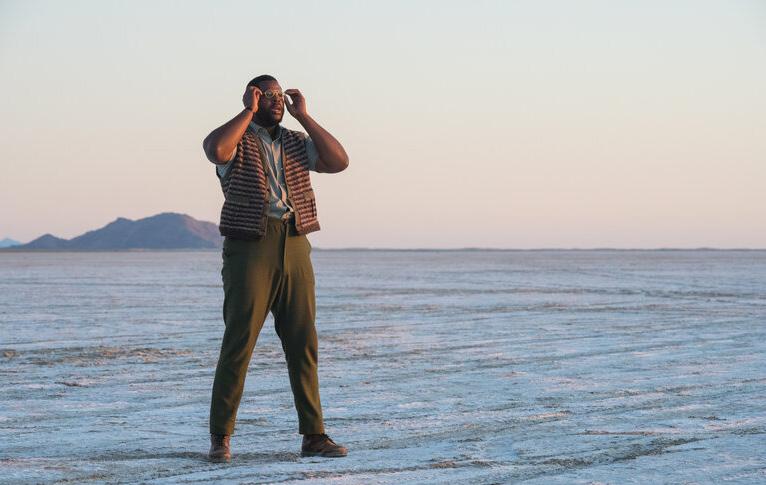
5 minute read
JEWISH LAUGHS
MOVIE REVIEWS
ALEX FIRST SHIVA BABY (M)
A sexually charged comedy, Shiva Baby is an awkward delight.
Daniella (Rachel Sennott) is a 20-something year old sugar baby, part of a close-knit Jewish community.
Her highly opinionated mother Debbie (Polly Draper) who is constantly bickering with her father, Joel (Fred Melamed), loves her dearly, but is controlling and smothering.
Debbie invites Dani to attend the Shiva Minyan (memorial service) for a member of the community who has passed away.
Dani does so, mind you she struggles not to appear disingenuous because she really doesn’t know who the Shiva Minyan is for.
As soon as Dani arrives, she spots a friend she grew up with, but someone she is desperately trying to avoid.
It soon becomes clear that something went down with that friend, Maya (Molly Gordon), a law student.
Meanwhile, soon thereafter Dani does a double take when she spots the gentleman who she has just “serviced”.
He – Max (Danny Defferari) – is equally taken by surprise.
Both appear to genuinely like one another, but things are about to get decidedly more uncomfortable.
That happens when Dani discovers Max is married to a beautiful, non-Jewish blonde entrepreneur, Kim (Dianna
Squirm in your seat Jewish laughs
Agron), and the pair has an 18-monthold daughter, both of whom join Max.
Further, the history of Dani’s relationship with Maya is also revealed as the cattiness between that pair continues.
Shiva Baby becomes an hilarious free for all with a crackerjack final act.
The movie works magnificently with Jewish cliches – think stereotypes, food, weight, career and relationships.
Characterisations are deliberately inflated, but relatable and in the main plausible, notwithstanding a few instances where I felt the exaggeration went too far.
Writer and director Emma Seligman has done a fine job capturing the claustrophobic nature of Dani’s increasingly harried mind.
The vast majority of the action takes place at the home where the Shiva Minyan is taking place.
The camera often focuses on Dani’s body language, actions and interactions with lightning impact.
The stringed score by composer Ariel Marx adds to the tension.
Much credit goes to actors Rachel Sennott and Molly Gordon for the work they’ve put into crafting their characters.
Sennott brilliantly captures the embarrassment and fear involved in the predicament Dani – who hasn’t determined what she will make of her life – finds herself in.
Gordon appears to effortlessly turn up the heat at will.
There is also much in the “looks” between Sennott and Danny Deferrari.
Shiva Baby has been designed to put a smile on your dial and it succeeds in doing so.
If this isn’t the most uncomfortable memorial service to which you have been privy, I would have to say your life is a whole lot more “out there” than mine.
Rated M, Shiva Baby scores a 7½ out of 10.
Life’s Challenges
ALEX FIRST NINE DAYS (M)
Life, with all its pleasures and heartbreak, is the stock in trade for an intermediary who is no longer an earthly entity.
He now determines who will and won’t get the chance to enter the world and thereafter have all their experiences – warts and all – monitored.
His name is Will (Winston Duke) and he used to exist, although his inherent decency didn’t hold him in good stead.
Now he interviews “prospects” for possible earthly appearance and although he doesn’t tell them what he is looking for, it soon becomes clear that resilience is high on that list.
Aiding him is Kyo (Benedict Wong), who has never “lived” in the conventional sense of that word.
He is well aware of the bumps along the way that Will has experienced and recognises that the ultimate choice or choices are Will’s domain and Will’s alone.
The title, Nine Days, refers to the time period for decision making, with either a thumbs up or a thumbs down given within that time frame.
Some don’t make it beyond their initial calling, others might seem to be heading in the right direction, but will still be caught short.
In the process, they are presented with a series of moral dilemmas that Will maintains don’t have a right or wrong answer.
Still, their responses serve to inform Will regarding his impending decisions about their respective trajectory.
When the movie starts, the concentration is on an active and curious young girl, a child prodigy and brilliant violinist named Amanda who, as time progresses, is about to perform her first concerto.
There is also a focus on a youngster who is bullied mercilessly.
Will spends countless hours monitoring (and video recording) them, and others he has chosen, on a bank of television screens, without the prospect of intervening in their earthly lives.
He subsequently starts a new phase of interviews, with an initial batch of adult contenders whittled down to five.
Among them is the pragmatic Kane (Bill Skarsgård) and the empathetic Emma (Zazie Beetz), who clearly has special attributes.
Will does all his work from an isolated home, within walking distance of a tip, rubbish from which he salvages and turns into memories.
Nine Days is big on retaining the mystery of what is going down.
Our minds are working overtime to try to figure it all out.
It is hardly a conventional narrative, far more of a brain teaser, which calls into question the meaning and purpose of life.
The sensitive score adds to the mood and tone of the piece.
The characterisations ring true throughout.
Duke is excellent as the movie’s centrepiece, who clearly has his struggles.
Wong, too, impresses as his more exuberant sidekick, whose character recognises his own limitations.
Beetz brings a joie de vivre and sense of promise to her representation of Emma.
She is the light in an ever-increasing sense of inevitability and despair.
Nine Days is a poetic, lyrical and thought-provoking fantasy.
Written and directed by Edson Oda, in what is his stunning debut feature, it is a well-crafted, cerebral film with a decided point of difference.
Rated M, it scores a 7½ out of 10.




